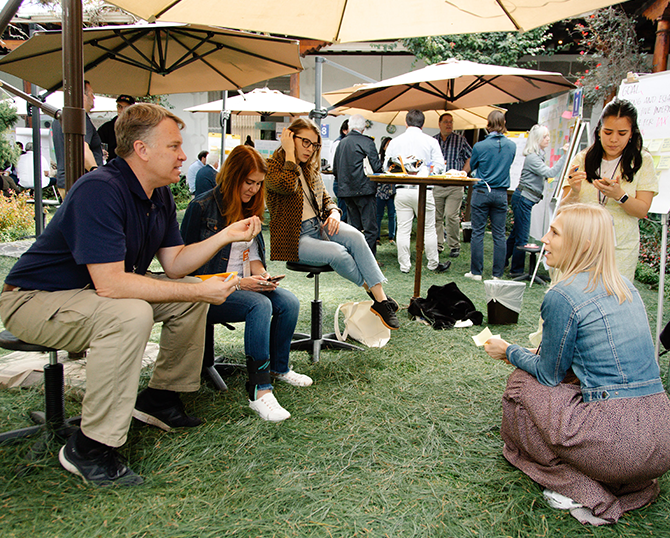
In January, leaders of the freedom movement from around the world gathered in Guatemala at Universidad Francisco Marroquín for the eleventh annual Antigua Forum. This conference—or, rather, “un-conference”—bills itself as an “Accelerator for Freedom,” a place where great minds can work together to sharpen their plans for the coming year. This invitation-only event gathers project leads from freedom-minded organizations, many of them Atlas Network partners, to challenge their assumptions and rethink their projects from the ground up, if need be. This intense, focused environment forges good ideas into great plans tuned for maximum impact.
The first day of the forum had participants asking, “Why?” Project leads presented their planned initiatives, explaining what problem they hoped to solve and how their current plans would be effective. The other attendees were asked to challenge them on these points, refining their objectives and forcing them to think about potential challenges that could arise. By questioning every assumption, they were able to establish a solid foundation on which they could rebuild on day two of the forum.
After solidifying their initiative goals, attendees workshopped to find the best way to accomplish them. Day Two focused on rebuilding projects to maximize efficiency and efficacy by using the best parts of the original plans and reinventing other components. For example, one Atlas Network partner, Better Cities Project (BCP), is building a database of policy proposals to address common problems in U.S. cities. Instead of casting too wide a net and “airdropping” proposals into cities, their participation in Antigua Forum led them to realize that a more targeted approach was needed. By focusing on cities that are likelier to be receptive to reform and working with key legislators, BCP stands a better chance of inspiring real policy change.
Besides Better Cities Project, several other Atlas Network partners benefitted from participating in Antigua Forum, including organizations that were selected as 2022 Smart Bets. Lebanese Institute for Market Studies revised their plan for an independent news and opinion website to instead focus on developing existing talent before branching out into new areas. Nkafu Policy Institute similarly refined their Nkafu Fellows Program to better attract the policy experts they are looking for. Lithuanian Free Market Institute found a way to market their tax reform proposals as part of a larger package of classical liberal policies. Macdonald-Laurier Institute workshopped a project to improve opportunities for native populations in Canada and elsewhere, while Mercatus Center presented their initiative to improve drone policy. Other participating organizations included Thrive Lights and Foundation for Research on Equal Opportunity. Each of these projects and organizations walked away from the forum stronger than they arrived, thanks to the power of focused collaboration and a willingness to learn from each other.